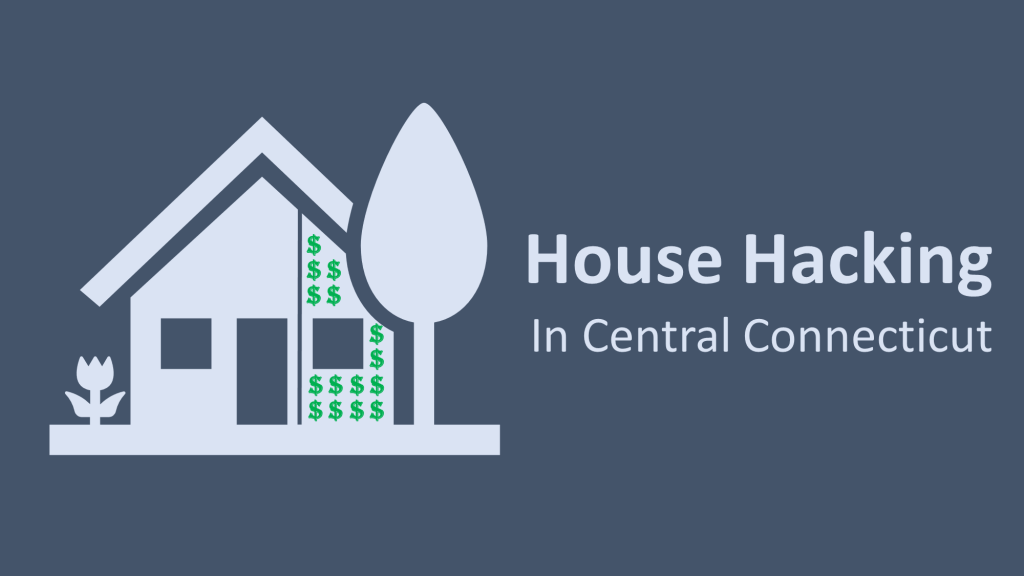
I recently became aware of the term “House Hacking.” For those that don’t know, the term describes a strategy for becoming a property owner without following the traditional path of buying a single dwelling unit in which to live solo.
The underlying idea is that the house (or condo, or multi-family building) is an asset that can generate income. There are various potential income strategies, allowing the house hacker the flexibility to find an approach that works for them both financially and logistically. It is most common to see the house hacking approach to ownership in areas with a high cost of living, but it can be implemented anywhere.
At one end of the extreme might be someone who buys a single-family home and wants to live in basically the whole space. However, there is an extra bedroom they don’t need and could rent to a roommate. The other extreme is someone who buys a property with no intention of living there personally. This article describes a buyer who bounced between different short-term housing situations while a tenant lived in his house.
Although the term “house hacker” is new to me, the idea is something I’m very familiar with. I have worked with multiple buyers who have used this strategy to purchase one or more properties. One client planned to bring in roommates to reduce his carrying costs. Another client implemented a strategy that looks more like traditional landlording. Another client is currently saving up for his first purchase, which will likely have an income component.
Buying a home with income potential is a terrific way to reduce your living expenses … assuming you are comfortable with the trade-off in privacy.
Here are my observations about house hacking in Central Connecticut:
Zoning Regulations Vary. Each town in Greater Hartford sets its own zoning regulations, which are the land use rules specifying what is allowed on specific properties. In this area zoning regulations often regulate the number of unrelated roommates that may live together, with different towns imposing different limits. Zoning also regulates the conditions under which you are allowed to add another kitchen to a property.
Some Towns Limit AirBnB Rentals. Short-term rentals via platforms like AirBnB and its competitors are a relatively new phenomenon. Towns are mostly playing catch-up as they debate and implement regulations to control how owners utilize those services. Where rules have been established they tend to be restrictive. The City of Hartford, for example, only allows owners to have 3 separate guests for a maximum of 21 days over a 6 month period, and requires owners to be present while the tenant is there.
Be Honest with your Lender. If you are going to be financing your purchase with a mortgage, then you need to be sure you are honest with your lender about how you will use the property. Committing to live in the home will generally allow you to get a traditional mortgage with the best terms. This is true regardless of whether you are buying a single-unit or a multi-family home. Loans for investors, who do not live in their buildings, tend to require a larger down payment and come with a higher interest rate.
Consider Multi-Family Buildings. Greater Hartford has an active market in 2-unit and 3-unit buildings. These properties offer separate spaces so the owner can live in one unit and rent the other(s). An added benefit is that because they are designed for multiple tenants, and have no owner-occupancy requirements, they can easily be converted to investment properties when the owner is ready to move on to their next home.
Hartford Allows Accessory Dwelling Units. The City of Hartford recently began allowing small apartments called “Accessory Dwelling Units” in single-family homes. The spaces must meet specific requirements, and go through the zoning approval process, but they are allowed to have their own kitchens and be separate from the main living space. They represent a half step between converting a building to two fully separate units since the buildings are still only allowed one set of utilities and the owner has to live in the building. One of the reasons that the City allowed this type of unit was that there have long been illegal apartments in the City, and this was seen as one way to legalize them.
House Hackers have a variety of options to achieve their goal of owning real estate without being responsible for the full cost to operate their property. A final word of caution – be sure to complete your due diligence on what is allowed in your preferred town(s), and make sure any needed paperwork is provided (or able to be acquired) for the intended use.
Good luck in your search, and remember that I’m here to help if you need me.